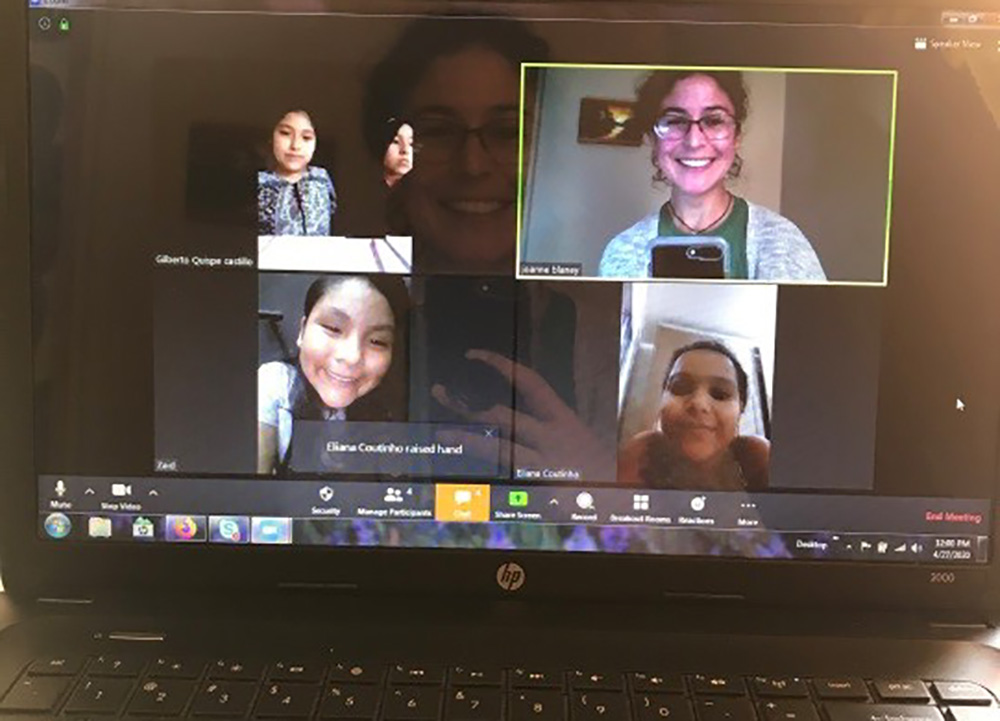
The start of our first English class on Zoom in April
The city of São Paulo has recently emerged as one of the world’s main epicenters of the COVID-19 pandemic.
Brás, a centralized, working-class neighborhood of São Paulo, is known for being the city’s garment district. The neighborhood centers on its “Dawn Market” and large textile industries. Since the COVID-19 pandemic, the market has closed, the textile industry has come to a halt and many jobs have been lost — just like in many other parts of the globe.
The once “busiest” streets of São Paulo and Brás resemble the streets of a ghost town, one Brás resident, Bolivian immigrant and friend, Alejandro, says. Brás’ Rua Coimbra is the largest meeting point for Bolivians outside of Bolivia and home to one of São Paulo’s Bolivian street markets, restaurants, souvenir shops, etc.
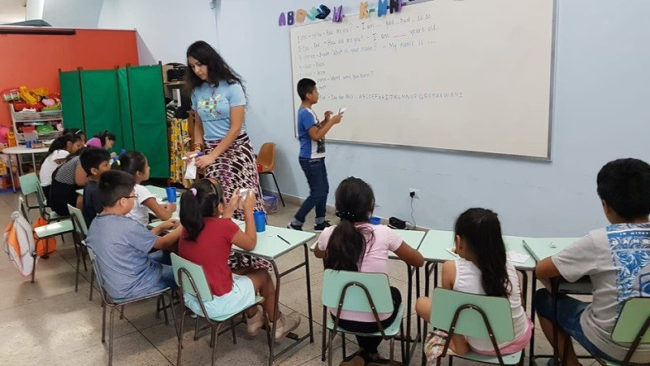
Leading an origami activity at the Immigrant Integration Center in São Paulo’s Brás neighborhood (in late 2019)
On this same street is one of my ministry sites, the Immigrant Integration Center (CIM). The center supports immigrants in many different fields like computing, documentation, baking, therapy, child education, women and men’s groups, music, etc.
In late 2018 I was welcomed with open hearts into the center as the art, physical education and English teacher. Every week I gathered with a group of kids (ages 5-12) in the morning (before school) and another group in the afternoon (after school). We alternated every week between art, physical education and English activities. Most of the children I serve come from migrant families — most from Bolivia, but also from Venezuela, Paraguay, Angola and other parts of Brazil.
Since the start of our quarantine, I have been lucky to be able to stay in touch with some of the kids and families through continued English classes via zoom. The virtual meetings have allowed us to include people from any place, so I invited some of the kids from the favela communities where I work to join in as well. Unfortunately many of our families have no or poor internet access, so I miss seeing many faces. Giving theses classes and connecting with the children and families is now the highlight of my days, while I practice physical distancing and stay at home.
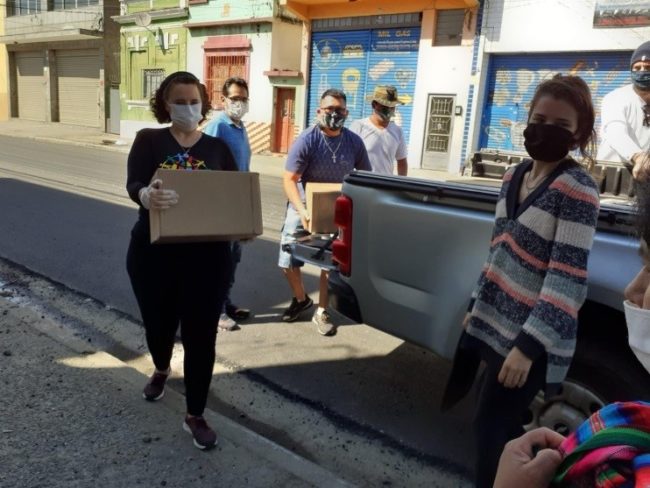
A local nonprofit delivering food donations to CIM
Catching up with CIM’s coordinator, Sister Malgarete, I learned that, like many others around the world, families in the neighborhood are now experiencing hunger. They have been knocking on the center’s doors asking for help.
Fortunately, the center has received cesta basica (basic food basket) donations from other nonprofit organizations who have been able to give a hand. These baskets generally include basic necessities and food staples such as beans, rice, flour, coffee, canned goods, and sometimes fruits and vegetables.
On the downside, the donations can’t always meet the need. Last weekend for example, 50 families came to the center pleading for a basket, but there were only 25 available. Some of the families — both in Brás and in the favela communities — really depend on these donations. “During the week, city hall has been sending basic baskets and ready-to-eat meals, but it’s not always enough for the bigger families,” a friend and resident of the favela community Haiti tells me.
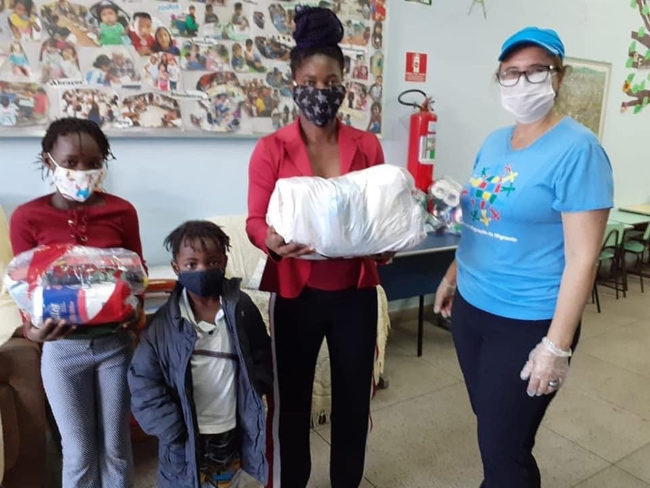
Sister Malgarete (right) distributing basic food baskets to a family who immigrated to Sao Paulo from Angola last year
I recently spoke with a Bolivian immigrant, Luisa Landim (the mother of two of my students), and, with her permission, recorded a video of her talking about the current challenges she and those around her are facing. She says:
The Bolivians who live here, but also immigrants from many other countries, during this quarantine we are facing much difficulty to pay our bills — such as water, light, and rent most of all. It is all very challenging for us to pay. Also, whether we rent through the owner themselves or an agency — they are demanding that we pay, but we are not currently working — nothing, nothing. It’s been about a month that we’re not working. And so we have a hard time.
[Those of us] living here in Brazil without proper documentation … aren’t able to get government help either from our countries or from here as well. Donations are greatly needed for us as much as for other people here in Brazil who aren’t making it. … I see a lot of people crying, they even come to my house asking for help, but I don’t have anything to help them with. If I had food I would help a lot, but we don’t have enough either, so I appreciate any help with all my heart. Thank you.”
I close with this quote from Pope Francis:
“May God put an end to this tragedy and this pandemic. May God have mercy on us, and may He put an end to the other terrible pandemics of hunger, war, and lack of education for children. This we ask as brothers and sisters, all together. May God bless us all, and may He have mercy on us” (Pope Francis at Santa Marta, May 14, 2020)

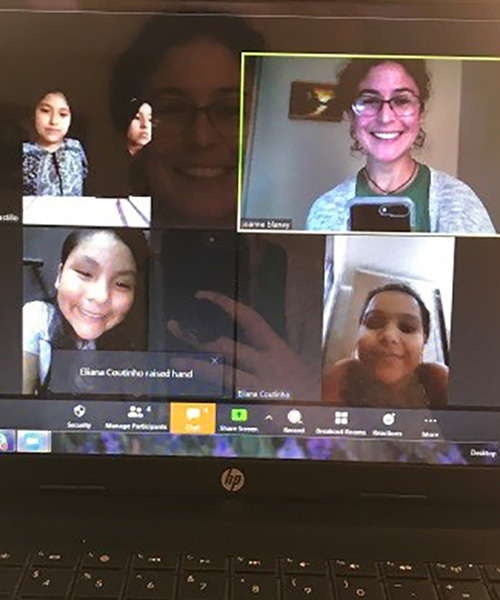

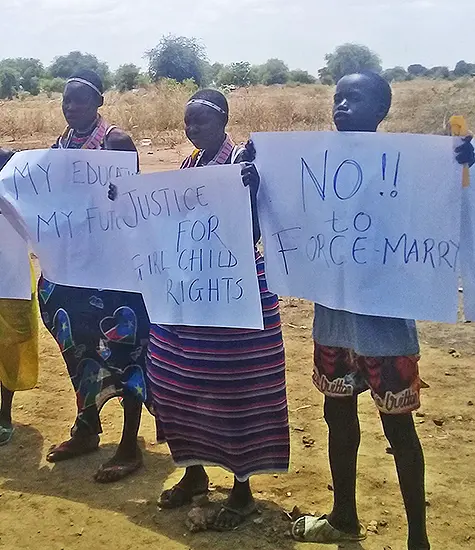
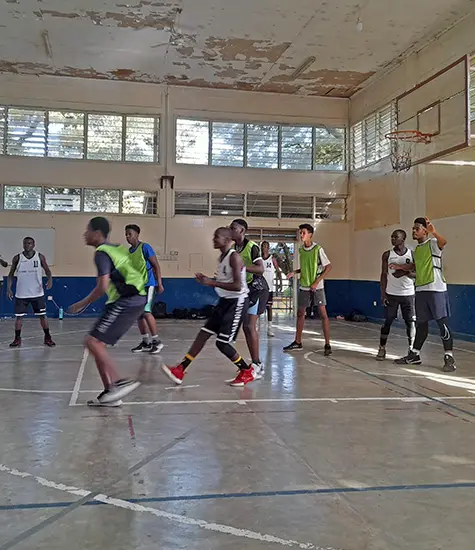
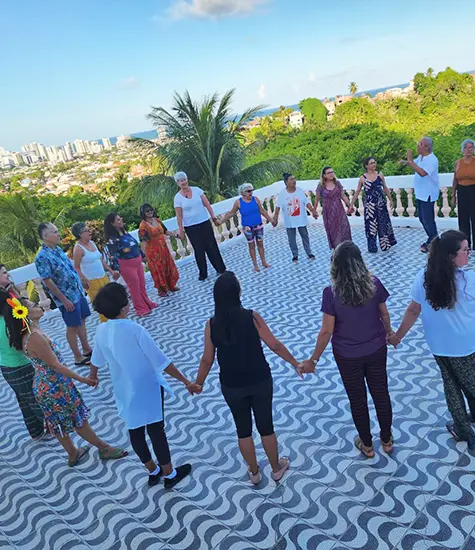




Great ministries, Margarita!